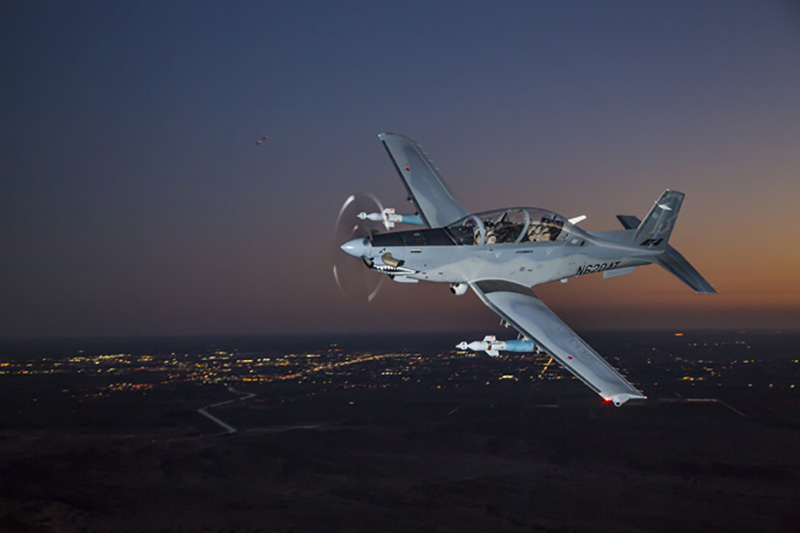
The U.S Airforce has announced it has made the commitment to acquire a small number of light attack aircraft. The USAF plans to acquire two to three Textron Aviation AT-6 and Sierra Nevada Corporation/Embraer Defense & Security A-29 aircraft.
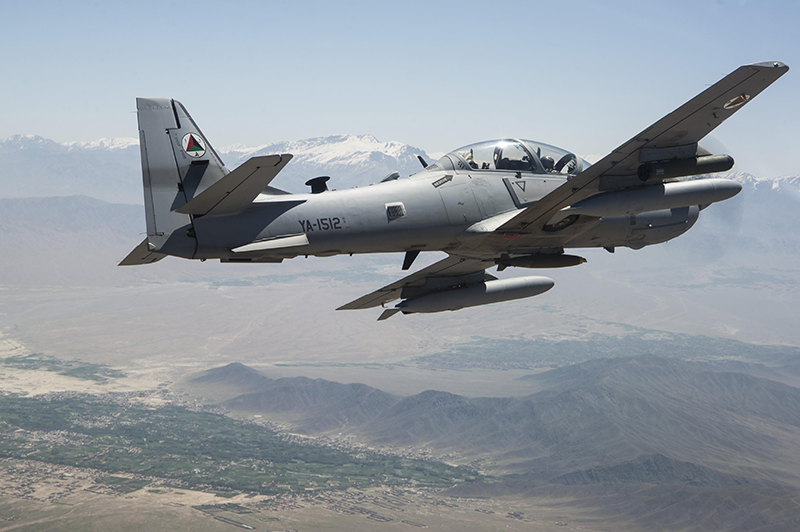
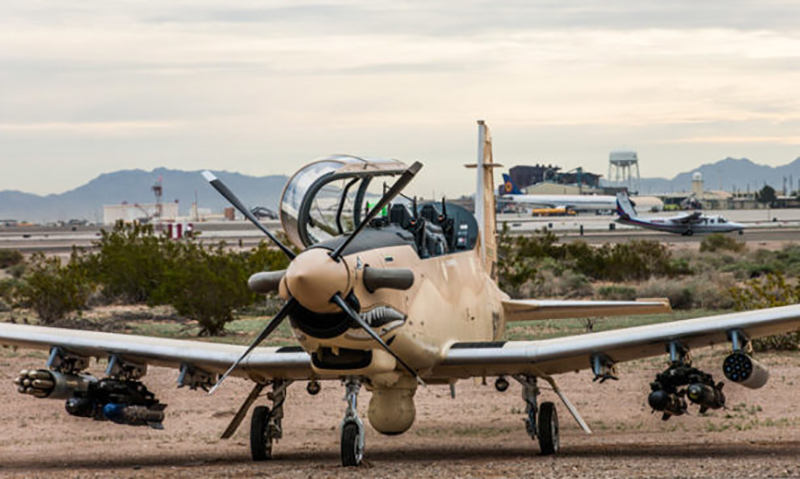
“Our focus is on how a light attack aircraft can help our allies and partners as they confront violent extremism and conduct operations within their borders,” Air Force Chief of Staff Gen. David Goldfein said in the release. “Continuing this experiment, using the authorities Congress has provided, gives us the opportunity to put a small number of aircraft through the paces and work with partner nations on ways in which smaller, affordable aircraft like these can support their air forces.”
The USAF has been working with the US Navy and USMC under the OA-X “Observation and Attack” concept. In a Congress submission dated August 23, 2018, the OA-X project was to identify a “light attack aircraft is a small, two-seat turboprop airplane designed for operation in relatively permissive environments. The announcement of a formal program follows a series of Air Force “experiments” to determine the utility of such an aircraft.”
The aircraft should see substantial cost savings over traditional advanced fighter aircraft, yet still fulfil the roles of non-traditional intelligence, surveillance, and reconnaissance (ISR) functions and, close air support for ground forces.
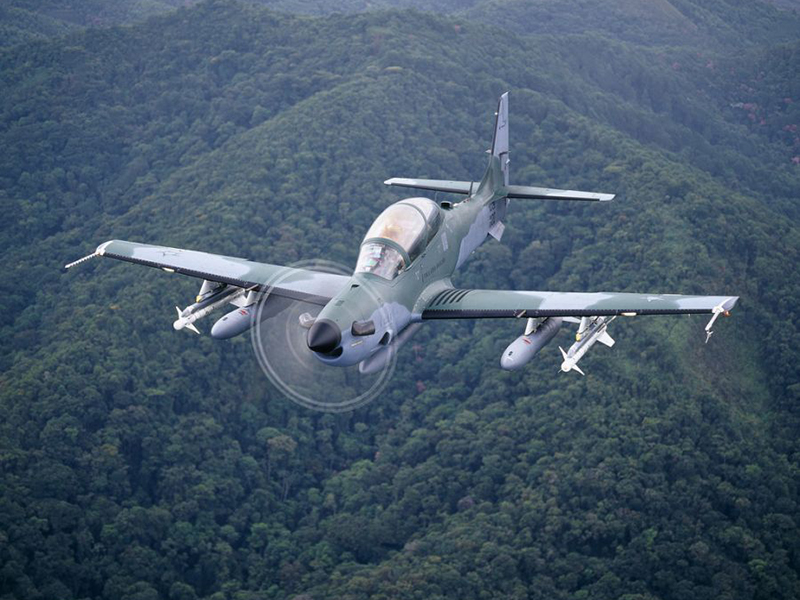
To fulfil these mission requirements the aircraft boast impressive firepower. The A-29 comes equipped with two internal .50-cal machine guns and four under-wing hardpoints capable of carrying MK-81 and Mk 82 guided munitions, according to Embraer; by comparison, Textron boasts, the Wolverine is “the first fixed-wing aircraft to employ 2.75″ laser-guided rockets successfully” and uses an adaptable system to carry a full suite of ordnance.
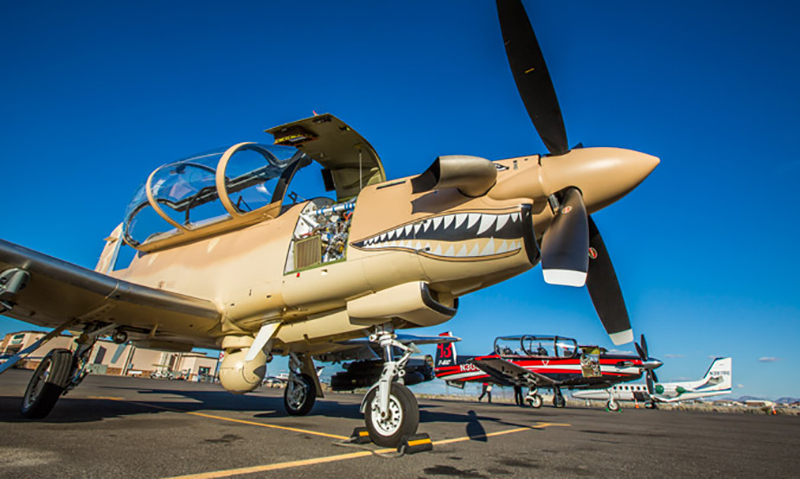
When it comes to close air support missions, the light attack aircraft should be able to relieve some of the stress placed on current aircraft, such as the heavy lifting A-10 Thunderbolt II. From it’s conception the OA-X experiment was envisaged as a replacement aircraft for the aging Warthog as the Air Force continues to push back it’s retirement date.

At a substantial cost for the USAF, the Warthog fleet has received and continues to receive multiple mid-life updates through the Common Fleet initiative (CFI) program commenced in 2018. This includes:
- a new wing,
- integration of the integrate the GBU-39 Small Diameter Bomb (SDB I), which according to reports allows the aircraft to target 18 targets simultaneously, whilst carrying four weapons per hardpoint.
- a new high-definition cockpit display that will improve the A-10’s ability to find and fix targets from greater distances,
- jam-resistant GPS,
- an improved communication suite, and
- three-dimensional surround-sound audio system
These enhancements are principally designed to improve the pilots situational awareness and the lethality of the aircraft in the fifth generation battlespace.
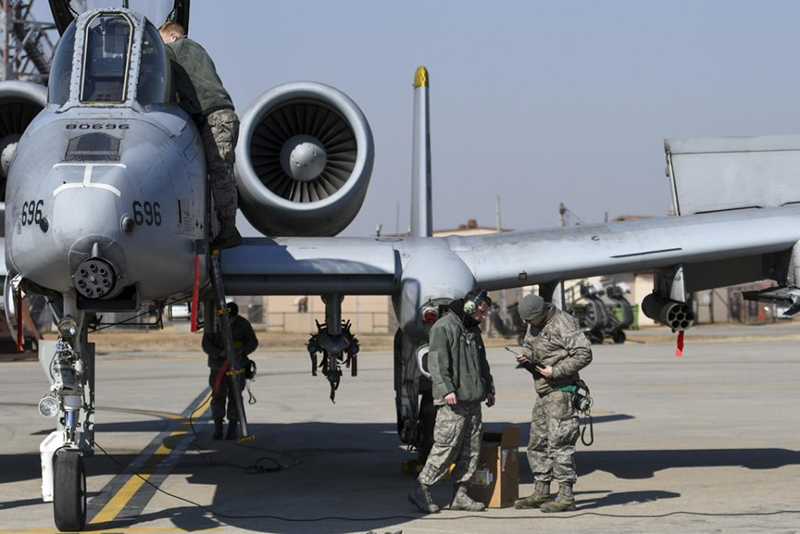
A like for like replacement between the AT-6 and A-29 is unrealistic, however the low-coast airframes will relieve the A-10 from some of it’s missions, allowing it to refocus on higher threat missions and increasing readiness through lower rates of effort.
The A-29 Super Tucano contract should be awarded before the end of the year, with the AT-6 Wolverine contract coming in early 2020.




